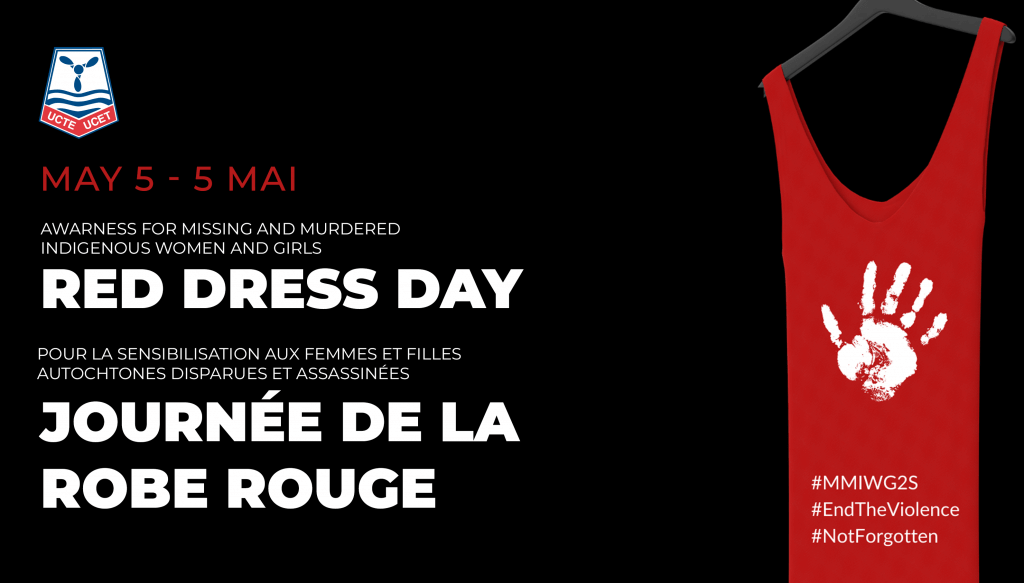Red Dress Day — May 5, 2022
In Canada, statistics show unequivocally that Aboriginal women and girls are more often victims of murder and disappearance. The homicide rate for Aboriginal women is five times higher than for non-Aboriginal women.
In 2015, the RCMP reported that 1,815 Aboriginal women were murdered between 1980 and 2014. In response to numerous calls for action from organizations such as NWAC and the Canadian Feminist Alliance for International Action (FAFIA) and Justice for Girls (JFG), the Government of Canada in September of 2016 launched a fully independent National Inquiry into Missing and Murdered Indigenous Women and Girls (MMIWG).
In 2014, Métis artist Jaime Black launched The REDress Project by collecting and hanging 600 red dresses to represent the hundreds of Aboriginal women and girls whose lives have been stolen. The National Indigenous Peoples’ Circle (NIPC) and the Aboriginal Working Group of the PSAC National Human Rights Council partnered with Jaime Black to create the red dress pin in solidarity with all Aboriginal female victims and survivors of violence.
On May 5, 2010, an event took place, drawing attention to the disproportionate rates of violence against Aboriginal women. Red Dress Day reminds us to honour and remember all missing and murdered Aboriginal women and girls, as well as 2SLGBTQQIA+ people.
In 2014, Jamie Black launched the REDress project, an art installation of 600 red dresses collected and hung to symbolize the hundreds of Indigenous women and girls whose lives have been stolen.
You can now show your support as follows:
- Sign the petition
- Attend a PSAC regional event to pick up a red pin
- Take a photo with a pin and tweet:
“I am wearing this pin in support of missing and murdered Aboriginal women and girls in Canada. They and their families deserve justice. #MMIWG ”. - Visit National Aboriginal Peoples’ Day events in your city.
Today, UCTE honours and commemorates all missing and murdered Aboriginal women, girls and 2SLGBTQQIA+ people, that is, it denounces violence against Aboriginal women, girls and 2SLGBTQQIA+ people. UCTE recognizes and celebrates the history, culture, pride and diversity of Aboriginal peoples.
